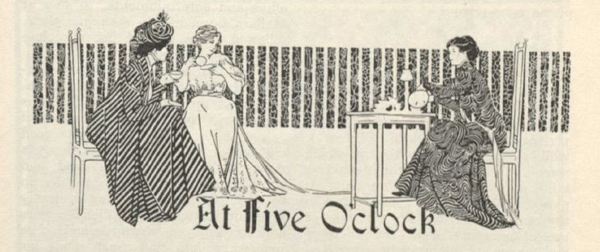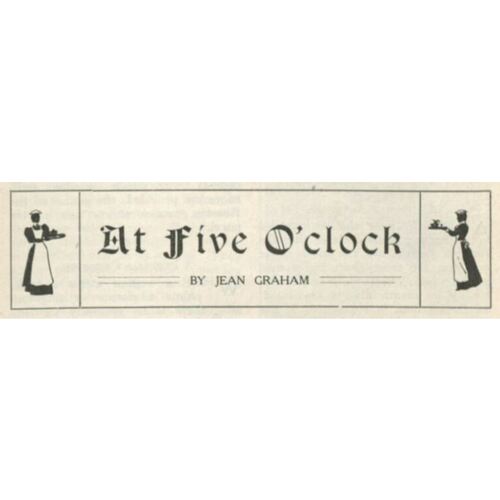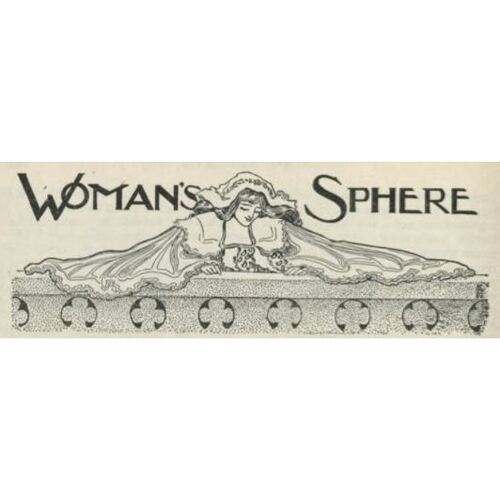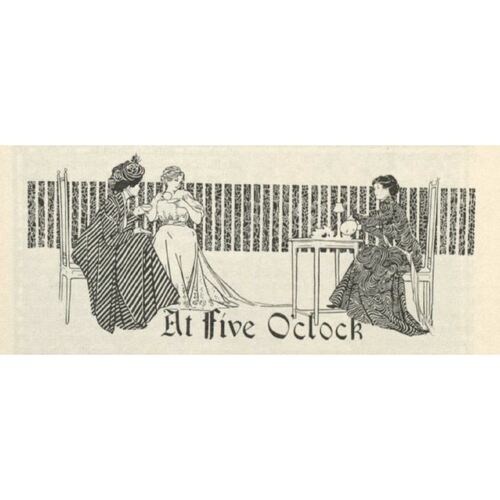
Source: Link
GRAHAM, JEAN (Emma J.), teacher, journalist, magazine editor, poet, and lecturer; b. March 1869 in Canton, Ont., eldest daughter of the Reverend James Graham and Emma J. Jeffers, and granddaughter of the Reverend Wellington Jeffers*; d. 10 July 1936 in Toronto.
Jean Graham should not be confused with a Toronto woman of the same name who served as a United Church missionary in China during the 1920s and in Japan during the 1930s. The journalist Graham was referred to in early records as Emma J., but soon began to use simply Jean, which was likely her middle name. As a child she may have attended local schools in the southwestern Ontario communities where her father served as a Wesleyan Methodist minister, including Goderich, London, Seaforth, and Dundas. Both her parents were published authors: her father contributed articles to the Canadian Methodist Magazine (Toronto and Halifax); and her mother wrote articles, short stories, and Etchings from a parsonage veranda (Toronto, 1895), which was illustrated by John Wilson Bengough*.
By 1886, when Jean Graham received her mistress’s degree in English literature from the Wesleyan Ladies’ College [see Alexander Burns*] in Hamilton, she was a well-educated young woman. She taught English and history at high schools in Toronto Junction (Toronto), Barrie, Stratford, and Kingston, and at a girls’ school in Charlotte, N.C. Her career as a teacher ended when she was presented with an interesting opportunity.
In 1910, some seven years after her return to Canada, Graham would explain her entry into journalism at a meeting in Toronto of the Canadian Press Association. She said that while teaching in Charlotte, she was asked by the editor-in-chief of a newspaper there to take over the publication’s society page. She did not name the newspaper or date the event, but indicated that the section’s editor had been challenged to a duel because of an unflattering article he had written about a wedding. The editor-in-chief concluded that a woman’s touch and sensitivity were imperative. Despite her lack of newspaper experience, Graham accepted the position and found what her contemporaries would refer to as her true calling – that of a journalist.
Graham’s experience in journalism served her well on her return to Canada in 1903. She immediately began working in Toronto at the popular national weekly magazine Saturday Night, although few articles with her byline would appear before 1912. Rising through the ranks, she was editor of the women’s section for some time. She covered a wide range of topics, including international personalities and places in the columns “Travel and talk” and “Ports of call,” and profiled prominent Canadians such as Charles Trick Currelly*, the founder of the Royal Ontario Museum, and judge George Herbert Sedgewick. Her last signed contributions appeared in 1933.
From May 1905 to February 1909 Graham wrote a regular column, “Woman’s sphere,” in the monthly Canadian Magazine, published in Toronto by Thomas Henry Best*. In March 1909 the title was changed to “At five o’clock.” The illustration of women in discussion at teatime featured at the head of the section set the tone for her contributions, which continued until April 1911. The following year she was the magazine’s associate editor.
In 1909 Graham was elected vice-president, and her friend Marjory Jardine Ramsay MacMurchy president, at the founding of the Toronto branch of the Canadian Women’s Press Club. The national organization had been established five years earlier by Katherine Angelina Hughes* and Kit Coleman [Ferguson*]. Graham would be a member for the remainder of her career. Also in 1909, she was appointed editor-in-chief of the Home Journal (Toronto), a position she held for several years, probably until the early 1920s. Founded in 1905, the monthly (not to be confused with another publication of the same name that existed from 1895 to 1901) became known as the Canadian Home Journal in June 1910. At about that time it claimed a circulation of 27,000; the figure would reach just over 68,000 by the mid 1920s. The magazine was intended for women readers, mainly those in Ontario, and it promoted numerous Canadian authors from other parts of the country. As editor, Graham did not hesitate to publish her own fiction as well as short stories by authors such as Helen Letitia McClung [Mooney*] and poetry by Isabel Ecclestone Mackay [MacPherson*]. She was a close friend of several female contributors, including Marjorie Lowry Christie Pickthall*. Among her professional concerns were the often-poor wages paid to teachers and journalists (men as well as women). Her long-standing membership in the Canadian Women’s Press Club and her enduring friendships with other female writers and journalists indicated her commitment to her profession and her desire to build community and professional networks among women.
Although she was only in her early forties, Graham complained in 1911 to her close friend Newton McFaul MacTavish* that because of poor health “it is quite time for me to recognize the melancholy fact that I am a ‘retiring’ journalist.” She would nonetheless continue to write and publish for many years. In fact by 1912, and perhaps even earlier, she was associate editor of the weekly Canadian Courier (Toronto), under the direction of John Alexander Cooper*. She had signed book reviews in 1911, and her friend Marjory [MacMurchy], now Lady Willison, would later claim that she was behind the pen names Canadienne and Erin, to which were attributed responsibility for the paper’s women’s pages during the period 1912 to 1914.
Over the years, 11 poems by Graham were published in Saturday Night and some in Life (New York); additional poetry appeared in other Canadian and American magazines and newspapers. William Wilfred Campbell* selected “Where dreams are sold” for the Oxford book of Canadian verse (Toronto, 1913). Lady Willison would claim that Graham’s character was “most clearly expressed in the verse she wrote, melodious, innocent, happy, unsophisticated.”
Graham had entered journalism during a period of transformation, and her life and career illustrated that transformation. A well-educated young woman, she began a most suitable career as a teacher, accepted a position as a newspaper writer in the United States, and, on returning to Canada in the early decades of the 20th century, found her calling as a journalist. The development of journalism and the emergence of the women’s movement during that same period were significant factors in her career. The rise of numerous women’s organizations created a need not only for news copy for female readers, but also for female journalists to cover the meetings, conventions, and rallies, as well as the various changes within these groups. Graham took full advantage of the widening horizons afforded to women of her education and socio-economic background.
Graham firmly believed that the press could elevate the tone and quality of the news. In an address to the alumnae of McMaster University in Toronto, she stressed that female journalists were a great benefit to “philanthropic work and public morals in general.” Throughout her career she gave numerous lectures, especially to women’s organizations.
Jean Graham continued to contribute to periodicals until about 1934, when illness forced her to stop. She may have been suffering from diabetes, which, together with bronchopneumonia and coronary thrombosis, would be listed as the causes of her death two years later. Although her maternal grandfather, her father, and one of her brothers were Methodist ministers, she was described in the Globe’s obituary as “an ardent member” of Toronto’s St Andrew’s Presbyterian Church. She was buried in the family plot at Mount Pleasant Cemetery. Her death registration states that she was widowed, but nothing is known of her marriage or her husband.
Issues of the Canadian Magazine, 1905–11, the Canadian Home Journal (Toronto), 1909–36, Saturday Night, 1911–14, 1930–34, and the Canadian Courier (Toronto), 1912–14, were consulted for this biography.
FamilySearch, “Canada, Ontario county marriage registers, 1858–1869,” James Graham and Emma J. Jeffers, 13 Aug. 1868: familysearch.org/ark:/61903/1:1:Q2YM-78NZ (consulted 8 May 2023); “Canada, Ontario deaths, 1869–1937 and overseas deaths, 1939–1947,” Jean Graham: familysearch.org/ark:/61903/1:1:JKN4-G26 (consulted 8 May 2023). Hamilton Public Library, Local Hist. & Arch. (Ont.), 00079-10 (Wesleyan Ladies’ College fonds, course catalogues). LAC, R233-34-0, Ont., dist. Huron North (26), subdist. Clinton (f): 15; R233-36-4, Ont., dist. Elgin West (61), subdist. Ridgetown (Town) (F): 25; R2800-0-3; MG30-D278 (Newton McFaul MacTavish fonds, Additional corr.), mfm. M-5563, item 449. Globe, 11 July 1936. Canadian men and women of the time (Morgan; 1912). Canadian Printer and Publisher (Toronto), 19 (1910). G. H. Cornish, Cyclopædia of Methodism in Canada … (2v., Toronto and Halifax, 1881–1903). “Graham, Mrs. Emma,” in Wallace, Macmillan dict., 308. An index to “Saturday Night”: the first fifty years, 1887–1937, ed. G. F. Heggie and G. R. Adshead (Toronto, 1987). M. L. Lang, Women who made the news: female journalists in Canada, 1880–1945 (Montreal and Kingston, Ont., 1999). “The late Jean Graham,” Saturday Night, 18 July 1936: 1. Middlebrow Network, “Magazines, travel and middlebrow culture in Canada, 1925–1960”: middlebrownetwork.com/resources (consulted 8 May 2023). Fraser Sutherland, The monthly epic: a history of Canadian magazines, 1789–1989 (Toronto, 1989). Marjory Willison, “Jean Graham: a tribute,” Saturday Night, 18 July 1936: 5.
Cite This Article
Anne-Marie Kinahan, “GRAHAM, JEAN,” in Dictionary of Canadian Biography, vol. 16, University of Toronto/Université Laval, 2003–, accessed December 19, 2025, https://www.biographi.ca/en/bio/graham_jean_16E.html.
The citation above shows the format for footnotes and endnotes according to the Chicago manual of style (16th edition). Information to be used in other citation formats:
| Permalink: | https://www.biographi.ca/en/bio/graham_jean_16E.html |
| Author of Article: | Anne-Marie Kinahan |
| Title of Article: | GRAHAM, JEAN |
| Publication Name: | Dictionary of Canadian Biography, vol. 16 |
| Publisher: | University of Toronto/Université Laval |
| Year of publication: | 2024 |
| Year of revision: | 2024 |
| Access Date: | December 19, 2025 |





